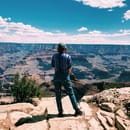The massacre that took place at Marjory Stoneman Douglas horrified everyone. The story of children and teachers being murdered and the brave student survivors quickly turned activists inspired the nation and seemed to solidify a movement for gun control and against the NRA as protesters and students showed up in record-breaking numbers. But many minority activists who have been living in the throes of gun violence their entire lives are upset by their exclusion from the discourse. Although the efforts of the Parkland survivors are certainly remarkable and have begun to influence amazing change, they are being lauded as the poster children for the gun control movement when they’ve only just entered onto the scene.
It is disappointing and upsetting to many minority activists that their stories have consistently been ignored but once gun violence touches a privileged affluent community, it becomes national news. However, it seems the Parkland kids are not at fault for the exclusion of their minority peers and other activists. They seem to be aware of this privilege and have tried their best to highlight black voices. On stage at the Washington D.C. March for Our Lives, Parkland survivor Jaclyn Corin said during her speech, “We recognize that Parkland received more attention because of its affluence. But we share this stage today and forever with those communities who have always stared down the barrel of a gun.” Many of the speakers were young people from neighborhoods across America that have been touched by gun violence. Edna Chavez, a 17-year-old from South Los Angeles spoke of the normalized gun deaths of black and brown youth in communities like hers and shared the trauma of losing her brother Ricardo. 11-year-old Naomi Wadler spoke for the ignored black women and girls who’ve been victims of gun violence.
Courtesy: Jonathan Ernst
Despite the attempts at inclusion at the March for Our Lives, black students from Douglas have criticized the leaders of the movement for not inviting them to meetings or discussions. Douglas student Tyah-Amoy Roberts states that “We feel like people within the movement have definitely addressed racial disparity, but haven’t adequately taken action to counteract that racial disparity.” Since black Douglas students have aired their qualms, Emma Gonzalez reached out to talk but as of now, there has not been a meeting scheduled.
The conversation of the marginalization of gun violence deaths in minority communities has come into the spotlight again because of the shooting deaths of Kimson Green and Rickey Dixon. The two teens were shot in Liberty City, a neighborhood in Miami, FL. Students at Northwestern High School had a walkout to protest the issue that has been ravaging their community with no media coverage while Douglas continues to make national news. Many Parkland students attempted to get the Liberty City walkout more media coverage by retweeting their story and calling for the same attention that they themselves received.
Courtesy: Democracy Now
To go back to Edna Chavez’s speech, she offers some solutions to address the issues of gun violence in these communities. She calls for a department specializing in restorative justice, funds for mentorship programs and mental health resources, and job opportunities. She highlights the criminalization and racial profiling that occurs when there is increased security and warns against arming teachers. “It is important to work with people who have been impacted by these issues,” she says.
As the movement continues and the Parkland students continue to fight for gun control, it is important to remember that they are teenagers dealing with trauma who have been thrust into the national spotlight. They will make mistakes, but they must be given the opportunity to learn from them. They also must be held accountable if they continue to ignore the voices that have been consistently been silenced.


